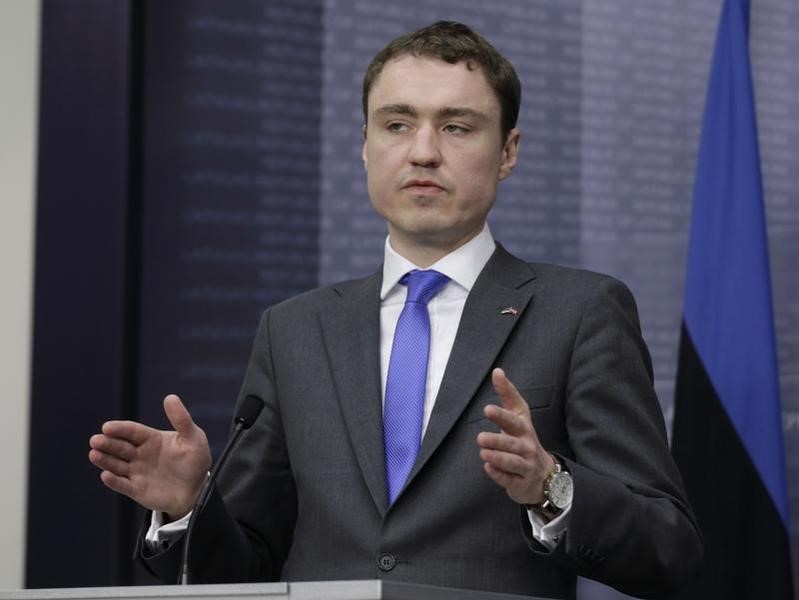By David Mardiste
TALLINN (Reuters) - Estonia's centre-right Reform Party is likely to retain power in Sunday's election and form another pro-NATO coalition, after a campaign dominated by security worries following neighbouring Russia's involvement in Ukraine.
Under Reform-led governments, Estonia has been one of few NATO members to consistently keep defence spending at a NATO goal of 2 percent of gross domestic product as it fears Russian influence over the Baltic states.
With more frequent breaches of its airspace by Russian aircraft since Moscow annexed Ukraine's Crimea region last year, it has called for the West to present a united front to deter Russian President Vladimir Putin.
"The defence issue, the security issue, I would say is the number one issue on the table," Prime Minister Taavi Roivas, Europe's youngest premier at 35 and strongly pro-NATO, told Reuters.
The economy will also be a factor. Estonia, a euro zone member since 2011, has the lowest public sector debt in the European Union but the parties differ over how to increase the minimum wage and whether to cut high social security tax.
Around a quarter of Estonia's population is Russian-speaking and some political analysts have warned that Russia could follow on from Ukraine and foment instability in the country, whether through Russian-speaking minorities, energy policy or cyber warfare, challenging NATO's ability to defend one of its smallest members, with a population of just 1.3 million.
The main opposition party, the Centre Party, gets 70 percent of the Russian-speaking minority's vote and favours better relations with Moscow as a path to improved security.
However, it is not expected to be in government as the other big parties reject it as a potential coalition party, partly because of allegations it misused taxpayers' money in Tallinn. The Tallinn city government, which the Centre Party controls, has denied the allegations.
Analysts see another Reform-led coalition with the Social Democrats as the likely election outcome.
A Turu-Uuringute opinion poll on Monday put the Centre Party on 27 percent, ahead of Reform on 22 percent and the Social Democrats on 18 percent with three smaller parties also getting into the 101-seat parliament. A poll by EMOR-TNS on Friday put Reform slightly ahead of the Centre Party.
Roivas, who became prime minister last March, believes Russia has a limited attraction for Estonia's Russian minority.
"I do not believe that the ethnic Russians living in Estonia want to be rescued by anyone, especially by a neighbouring country," he said.
Of Estonia's 332,816 Russian speakers, 92,207 hold Russian citizenship. But more than 150,000 people, mostly ethnic Russians, have acquired Estonian citizenship since Estonia gained independence after the breakup of the Soviet Union in 1991.
Sven Mikser, Defence Minister and leader of the Social Democrats, said more needs to be done to help Russian speakers.
"Obviously the existence of Russian-speaking people can serve as a pretext for Putin if he wants to do something reckless or aggressive towards Estonia, but that does not mean that people who are living here are disloyal or a security risk," he told Reuters.

Estonia emerged in 2010 from a deep recession and public sector debt is projected at 9.6 percent of GDP for 2014 against 175 percent for Greece. Unemployment has fallen to 7.4 percent from 16.7 percent in 2010 but parties are divided over raising the minimum monthly wage of 390 euros and over tax breaks to boost take-home wages.